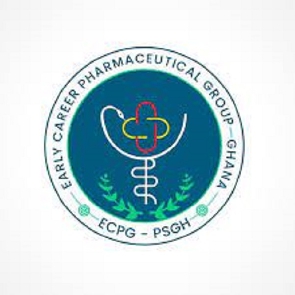 Logo of the Early Career Pharmaceutical Group in Ghana
Logo of the Early Career Pharmaceutical Group in Ghana
The healthcare landscape in Ghana stands at a crossroads, with a pressing concern that demands immediate attention - the chronic under-recruitment of pharmacists in the country. This issue, which has persisted over the years, is a growing cause for concern among healthcare professionals and advocates alike. In this article, forensic care is centred on the critical need to prioritize pharmacist recruitment in Ghana, especially within the public sector, and the far-reaching consequences of this persistent shortfall in the healthcare workforce.
As the Chairperson of the Early Career Pharmaceutical Group in Ghana(formerly the Young Pharmacists Group), I am deeply concerned about the consistently low recruitment of pharmacists by the government. This issue has far-reaching implications for patient care and the overall health system in our country.
Here are 10 points highlighting the risks and losses associated with the insufficient recruitment of pharmacists in Ghana, particularly in the public sector:
1. Imbalanced Healthcare Workforce: The persistent shortage of pharmacists in comparison to nurses and doctors has led to an imbalanced healthcare workforce, hindering the holistic and coordinated delivery of healthcare services. The Government is well aware of the Staffing requirement (staffing norms) for equipping all the health institutions across the country. The call is to increase the current number from 300 Pharmacists to 1000 for a start.
2. Medication Safety: Pharmacists play a crucial role in ensuring the safety and effectiveness of medication use. Insufficient pharmacist staffing can result in medication errors, which can harm patients and increase healthcare costs.
3. Promoting Rational Drug Use: Pharmacists play a pivotal role in fostering rational drug use through their involvement in patient care. They provide crucial guidance to patients, ensuring proper medication adherence, preventing the misuse of prescription drugs, and actively working to reduce unnecessary polypharmacy.
4. Chronic Disease Management: With the rising prevalence of chronic diseases in Ghana, pharmacists are vital for managing and monitoring patients with chronic conditions, ensuring they receive appropriate medication and education.
5. Public Health Initiatives: Pharmacists are well-positioned to contribute to public health initiatives, such as vaccination programs, health education, and disease prevention. Their absence hampers these efforts.
6. Cost-Effective Care: Pharmacists can help reduce healthcare costs by providing cost-effective drug therapy alternatives and preventing expensive hospitalizations due to medication-related issues.
7. Enhanced Primary Care: Integrating pharmacists into primary care teams can improve access to healthcare services, especially in underserved areas where doctors are scarce.
8. Reduced Wait Times: A shortage of pharmacists can lead to longer wait times at pharmacies, discouraging patients from seeking timely care and exacerbating their health conditions.
9. Missed Opportunities: The limited employment of pharmacists means missed opportunities to harness their expertise in pharmaceutical research, development, and innovation, hindering advancements in healthcare.
10. Global Best Practices: Many countries prioritize pharmacist involvement in healthcare delivery. By not doing so, Ghana lags behind global best practices, affecting its international reputation and healthcare quality.
In conclusion, the consistent under-recruitment of pharmacists in Ghana, especially in the public sector, poses significant risks to patient care, healthcare quality, and the overall health system.
It is imperative that the government reevaluates its healthcare workforce strategy to prioritize the employment of pharmacists to ensure better healthcare outcomes and enhance the overall health of the nation.













